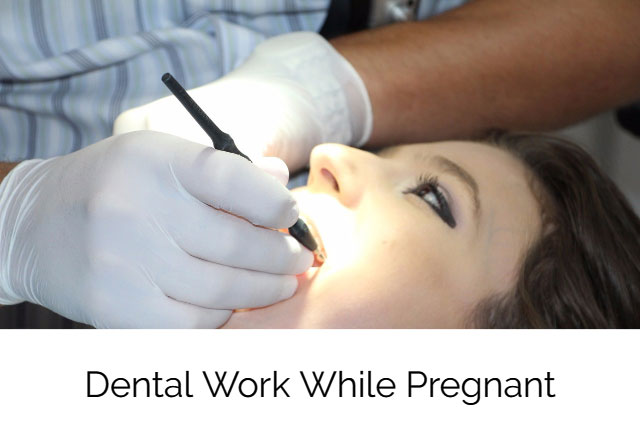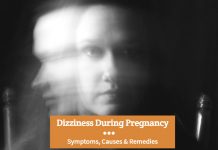There are many things that a pregnant woman to keep her baby healthy. However, equally important are the things that a woman must not do during the pregnancy. Once such issue is dental work while pregnant. Since there are a lot of dental procedures, a pregnant woman should know what is safe for her.
Dental problems during pregnancy
How pregnancy affects teeth? There is an old wives tale saying that you lose a tooth for every baby born. Indeed it is a baseless rumor. However, it does have a slight significance. Some changes during pregnancy make one question safety of dental work during pregnancy.
- Your joints loosen up in the entire body. Periodontal joints can also loosen leading to shaking teeth. The periodontal ligament loosens. Pregnancy gingivitis and gingival granulomas is another consequence of pregnancy on teeth. These are due to hormonal fluctuations.
- As pregnancy progresses, the baby pushes mother’s diaphragm and intestines. This causes a difficulty in breathing. A pregnant woman is at risk of losing her breath during mild exertion. For this reason, dental anesthesia can cause a pregnant woman to fall into a coma.
- A pregnant woman experiences a severe increase in blood pressure. That’s why complete anesthesia during pregnancy is not safe. A raised blood pressure makes a pregnant woman prone to heart attacks. High blood pressure prevents doctors to do tooth extraction or root canal while pregnant.
- Mild osteoporosis or weakening of bones also occurs during pregnancy. Especially if a woman doesn’t supplement her diet with calcium, she will have low-density bones. It also affects the calcium in teeth of a pregnant woman.
- Morning sickness ends with vomiting. Acids in the vomit damage the enamel. Rinsing the mouth is compulsory to avoid further damage to teeth during pregnancy.
Pregnancy can worsen dental problems like gingivitis or abscess. It is safe to take routine dental treatments like scaling and periodontal cleaning during pregnancy.

Dental work while pregnant
Dental work while pregnant might seem a trivial thing to doubt for safety. But it is essential to know that any treatment involving the use of anesthetics can be potentially damaging for your baby.
Anesthesia leads to a temporary coma. The overdose of anesthetics can even cause a permanent coma. It is the dose of anesthetic which decides the extent of induced deep sleep.
The dose varies depending on the age of a patient. In case of babies, the dose would be extremely less compared to adults.
The dose also depends on other things like blood pressure, heart rate, and any disease. You and your baby are different like chalk and cheese for all these parameters.
Anesthetics always go into your bloodstream as they are intravenous injections. What once goes into your bloodstream reaches every organ. Through blood, the anesthetic goes to your baby.
Due to the anesthetic, your baby’s heart rate can drop below normal or even stop! There is a high risk involved.
Dental care during pregnancy
Some women want to know that if dental work safe during pregnancy safe.
Dental care and oral hygiene during pregnancy are essential during pregnancy.
A study published in Journal of American Dental Association says dental anesthesia is safe during 13th to 21st weeks of pregnancy.
Local or topical dental anesthesia for essential dental work during pregnancy is safe.
Periodontal treatment during pregnancy did not cause any severe ill effects in a pregnant woman.
Pregnant women in early or late pregnancy should avoid root canal and other treatments. It is because they differ in post-treatment care.
Can I get routine dental work while pregnant?
Routine dental work like plaque removal and cleaning is good and not harmful.
Any dental treatment which doesn’t require the use of anesthetics is safe. In fact, preventive and routine dental care while pregnant is a good practice.
The bacteria in the plaque region or gingivitis or any other local teeth disorder might spread and get into the pulp cavity.
The blood veins present in pulp cavity of teeth will carry these bacteria to other parts of the body. They can even reach your baby.
Since your baby doesn’t have a robust immune system developed yet, these bacteria can cause severe infections.
Preventive dental care such as cleaning of scales is done after six months. A normal pregnancy will last for nine months, and thus you’ll have to get such treatments.
Can I get root canal or tooth extraction while pregnant?
Root canal and tooth extractions are invasive surgeries. One needs local anesthesia for undergoing such treatments.
Despite being localized anesthesia, it can travel through the blood. Teeth have pulp cavity under the enamel cover.
The anesthesia is nearby this pulp cavity. If it reaches your baby, it can cause mental illness.
Can you get a tooth pulled while pregnant?
Tooth extraction during pregnancy is safe during the second trimester. However, it is best to postpone such complex dental treatment during pregnancy.
Dental filling during pregnancy is entirely safe during the second trimester.
The infection from cavities can spread through the bloodstream to the baby and thus it needs treatment.
Can I get cosmetic dental surgery while pregnant?
Cosmetic procedures and teeth whitening treatments are elective. One can choose to postpone them. Such elective dental treatments should be done after delivery.
Teeth whitening treatments use a lot of fluoride compounds. These fluoride compounds are present in teeth whitening toothpaste also. However, they are unsafe for neonates. They can interfere with brain development.
Any other maxillofacial surgery requires complete anesthesia which is completely forbidden for pregnant women.
If you have an unavoidable dental problem while pregnant that needs immediate treatment then you must speak with your doctor.
They will analyze the severity of the condition. Depending on the urgency for treating dental disorder while pregnant, doctors will sort out a way for it.
Doctors will use a fetal monitor to observe your baby. This fetal monitor will help doctors see your baby while doing the dental work while pregnant.
It will monitor the condition even after the surgery is complete. If things remain normal, then the doctors will discharge you after 4 – 5 hours.
What dental work is safe during pregnancy?
The safest time to get dental treatment during pregnancy is during the second trimester.
Dental work while pregnant is essential in case of an abscess. It is an infection which spreads in the tooth pulp.
In abscess, the tooth pulp gets a bacterial infection, and pus fills. These bacteria can move through the bloodstream and reach the baby.
This is why it is a condition where dental treatment is essential during pregnancy.
Nevertheless, doctors will first ensure whether you can undergo surgery. They will monitor you and your baby after the surgery.
The doctors will ensure that your infection has completely healed and that the bacteria number is reducing.
They might give you some medicines for recovering and preventing allergic responses.
Make sure that you do not skip any of these and complete the antibiotic course.
If you leave a course of antibiotics in between, it leads to a second lapse of the infection. Next time it can be of higher intensity.
Dental work while pregnant first trimester
Only preventive dental care is permissible during pregnancy first trimester. A doctor will only treat you for plaque control or oral hygiene. Elective treatment is not advised during pregnancy.
Simple scaling and cleaning is a part of dental work while pregnant first trimester.
For emergency dental treatment during pregnancy proper radiograph technique is essential.
During the first trimester, the baby’s organs develop, and this is the most critical time. Exposure to harmful radiation can damage the tissues of baby.
Is Dental X ray safe during pregnancy?
According to American College of Radiology, a single X-ray is never enough to cause any damage to the fetus.
American Dental Association declared Dental X-ray during pregnancy safe with proper precautions.
The American College of Obstetricians and Gynecologists permits dental X rays during pregnancy.
Dental X-ray during pregnancy needs an abdominal shield and lowest dose of radiation. Dental X-ray during pregnancy is safe. Digital Dental X-ray is safer than the traditional x-ray.
Dental X-ray during pregnancy should not take many images as long-term exposure can cause spontaneous abortion.
Other ill effects of dental work during pregnancy can cause genetic abnormality or bone deformation.
Dental work while pregnant – second trimester
Dental work is safest during pregnancy in the second trimester. The first half of the third trimester is also safe for dental care while pregnant.
Nevertheless, complex dental care is best done after pregnancy.
Scaling and prophylaxis will prevent any dental problems during pregnancy.
Second trimester is safe for dental work while pregnant. Doctors carry out any treatment that cannot await baby delivery.
Dental work while pregnant – third trimester
Only emergency dental work while pregnant is safe during the third trimester.
Periodontal cleaning and gingivitis treatment are safe during the third trimester.
It is essential that the pregnant woman doesn’t lie down completely during dental anesthesia so that blood doesn’t reach the fetus.
Such harmful dental procedures while pregnant can cause pregnant women to lose consciousness.
Also, the pregnant woman must lie down with her right hip lifted. This will avoid the pressure on vena cava (heart blood vessel) and prevent lodging of blood in legs.
Dental safe medications during pregnancy
Most dental medications are safe during pregnancy.
- Is dental anesthesia safe during pregnancy? Lidocaine is safe. It is the most common local dental anesthetic used. It doesn’t cross the placenta and is safe. Dentists also use another drug Novocaine. Is Novocaine safe during pregnancy? Novocaine is also a local anesthetic but is obsolete.
- Epinephrine is also safe provided the pregnant woman has proper preventive care. Cardiovascular modulators can potentially cause oxygen shortage in blood. Epinephrine with Lidocaine is the dental anesthesia used for dental work during pregnancy.
- Tetracycline antibiotics for dental care during pregnancy can discolor baby’s teeth.
- Codeine and propoxyphene are safe for dental work during pregnancy.
- Acetaminophen as an analgesic or pain reliever is safe for dental care during pregnancy. Aspirin and other anti-inflammatory medicines can harm a pregnant woman. Ibuprofen and naproxen can also harm pregnant women.
- Is teeth bleaching safe during pregnancy? No, the bleach and other fluoride compounds are not safe for baby.
- Antibiotics such as penicillin, amoxicillin, cephalosporins, and clindamycin are safe. Doctors prescribe them for post dental treatment care during pregnancy.
Dental Care and Pregnancy
Tips for dental problems before you get pregnant
- Get a complete dental checkup for any gum diseases. Get all treatments done in advance of your pregnancy.
Top tips for dental problems during pregnancy
- Brush your teeth twice a day and floss daily to avoid dental problems during pregnancy.
- Go for preventive care such as scaling, prophylaxis and periodontal cleaning.
- For all cosmetic surgeries and elective treatments wait until delivery of your baby.
- Lie down comfortably in the dentist’s chair and do not cross your legs. Put a pillow underneath.
- Avoid sweets and snacking. More frequent snacking can cause dental caries during pregnancy.
- If morning sickness causes vomiting make sure you rinse your mouth. Do not skip brushing.
- Use ADA approved bland tasting toothpaste during pregnancy. Rinse your mouth with water often.
- Have a balanced diet with a lot of dairy products. Milk, curd, cheese, and yogurt provide the essential minerals and calcium.
After you deliver your baby get a thorough dental check-up with your doctor. One should immediately get all postponed dental treatments during pregnancy treated.










[…] it is a dental treatment or a fracture, you need an X-ray. Even if you are safe and sound, you will encounter an X-ray […]